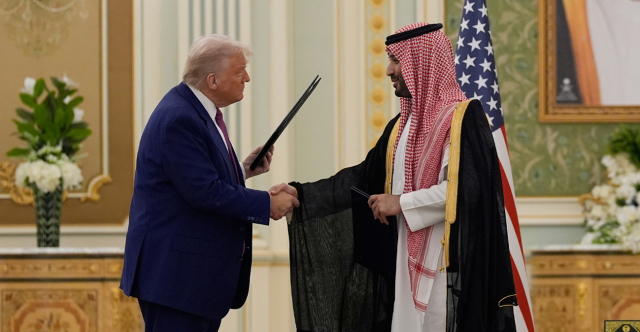Donald Trump arrived in Riyadh with a clear agenda. In his speech, which slightly exceeded the length of his inaugural address, he outlined his approach to the Middle East and made a strategic decision, at least for the time being. The critique of Israel was particularly sharp, unprecedented even by Joe Biden, who has not been particularly fond of Benjamin Netanyahu and his management of the Gaza and Lebanon situations. The way the U.S. announced its shift in stance was also notably calculated.
Before endorsing a new plan for Syria, effectively acting as guarantors for Saudi Arabia and Turkey, the U.S. President sparked tension by mentioning a phone conversation with Erdogan. Trump is not one to shy away from confrontation. Following some initial denials about a rift with Netanyahu, he confirmed what had been denied by sources in both the White House and Israeli leadership just hours earlier.
While the future of the Middle East remains uncertain, it’s evident that without Israel, or a significant withdrawal of its influence, lasting stability and peace in the region are unlikely. Historically, this area has been a source of major conflicts and upheavals.
Trump’s strategy appears to be driven by a business mindset. He entered Riyadh with the prospect of securing a $1 trillion investment. While the initial figure earmarked by the crown prince is around 600 billion, Trump knows Saudi Arabia is poised to engage on an economic level that benefits both the nation and himself. The agreements struck were framed as personal victories for Trump, who has often complimented Prince Salman with a personal touch and a broad smile.
However, amid his speech, few noticed a subtle warning with an implicit deadline. Trump underscored that he determines the global balance of power, giving Israel less leverage while sternly warning Iran. He emphasized that nuclear weapons will never be tolerated in Tehran, reiterating that the U.S. proposal, pending for a month, required a response “now or never.”
Trump’s administration views Tehran as a pivotal player in regional dynamics, affecting the trajectory of various nations, including Tel Aviv. Yet, he avoided referring to a ‘war,’ particularly a traditional one, instead emphasizing an economic conflict that dates back to his first term.
During that term, Trump imposed the most severe sanctions ever on Iran, a policy partially continued by Joe Biden until he approved the release of several billion dollars to Tehran, contingent on reducing its nuclear ambitions. Ultimately, neither Trump’s tariffs nor Biden’s financial maneuvering resolved the underlying issues but served merely as temporary relief for a chronic problem that requires a much different solution.
Ask Me Anything
Explore Related Questions

















